11 Human Foods Your Cat Can Eat
Ever caught your cat eyeing your dinner with intense curiosity? Sure you did, and you also felt the urge to let your feline friend sample your food. But as a responsible pet parent, you should ask yourself: “What human foods can cats eat safely?” Shall we find out?
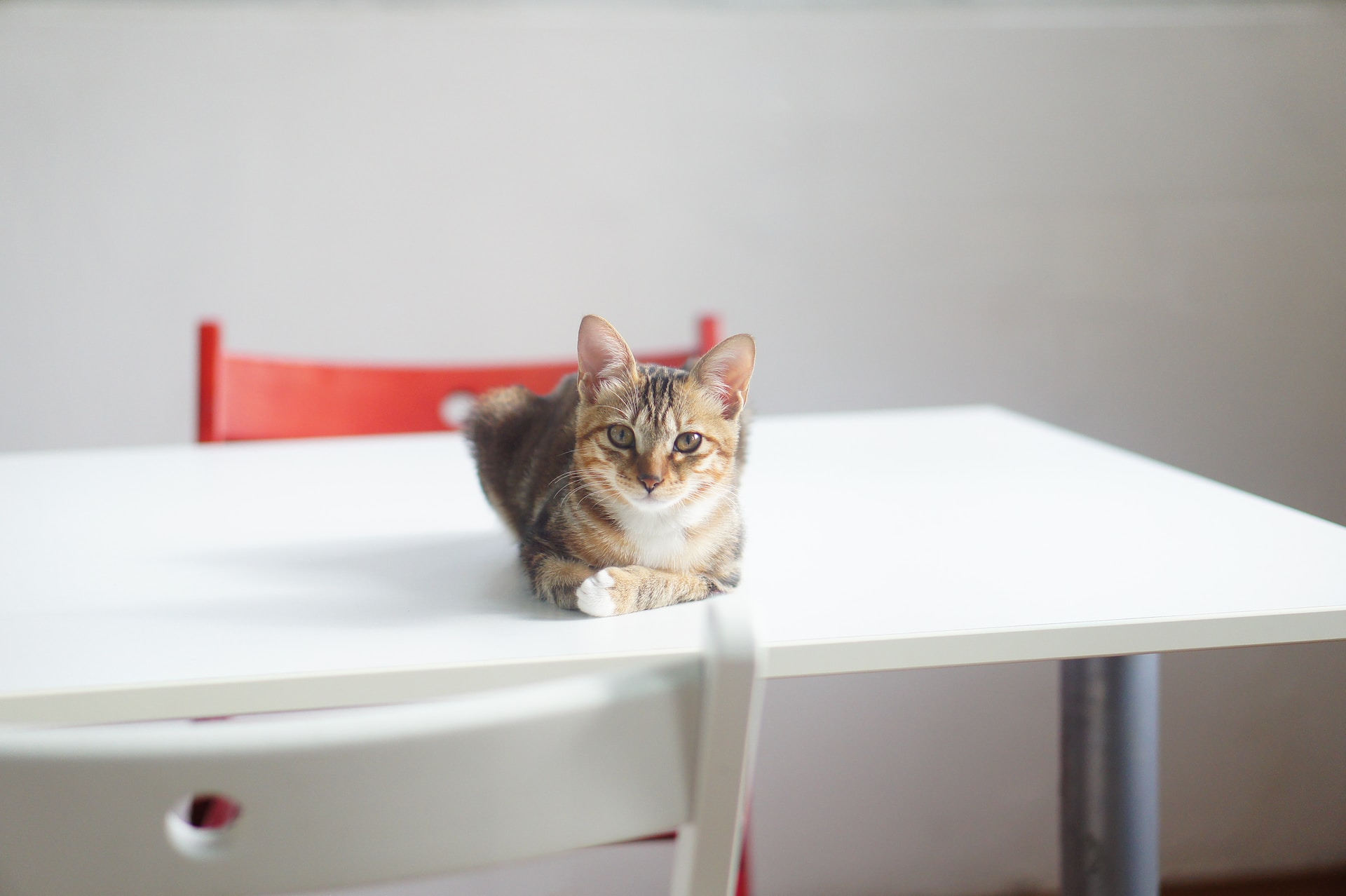
What human foods are great for your cat?
The answer isn’t so black and white – while some of our foods are a feline feast, others could be downright dangerous. So, in this article, we’ll dive into the DOs and DONTs of human foods for cats, helping you understand what’s a treat and what’s a threat!
And if your favourite furry friend is a dog, you might want to know more about Dog’s Sleeping Positions And What They Reveal About Their Personality and Health
1. Fish
Let’s dive into our first human food for cats – fish. Notorious for their love of fish, cats can indeed safely enjoy this protein-rich food. Fish is packed with essential vitamins, minerals, and crucial omega-3 fatty acids, making it a fantastic choice for our feline friends. These nutrients not only boost overall health but can also help manage conditions like arthritis and kidney disease.
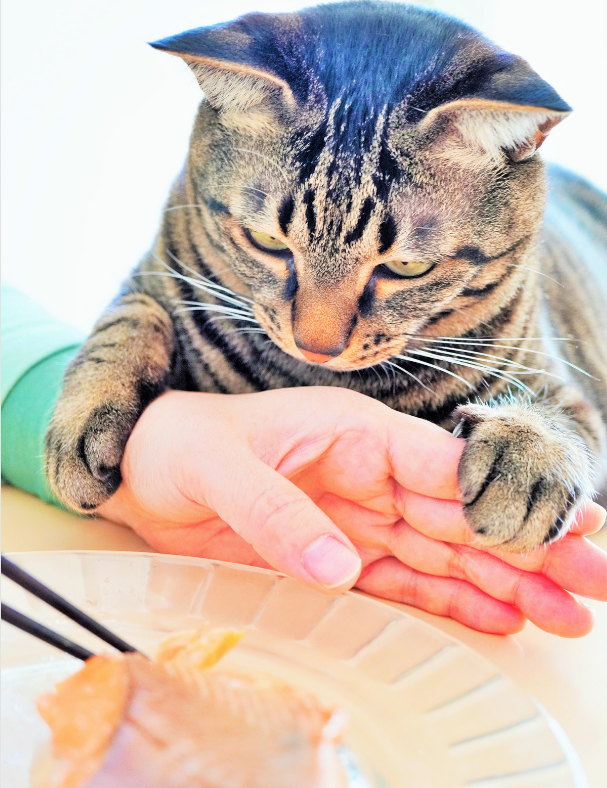
However, there are a few ‘fishy’ guidelines to follow. Always ensure the fish is cooked and bone-free, and lean towards fresh-caught over farm-raised varieties. Serving it boiled and unseasoned in small pieces is the best way to go. Raw fish can be dangerous due to potential parasites and bacteria.
Despite being a great source of nourishment, fish shouldn’t constitute the entirety of a cat’s diet. Too much fish can lead to a deficiency in Vitamin E and even cause a painful condition known as ‘steatitis’. Tuna, a cat favorite, consumed excessively can lead to mercury poisoning.
So, the key takeaway? Treat your cat with fish but keep it balanced and always properly prepared.
2. Cheese
From fish, let’s switch gears and talk about something a little cheesier. That’s right – cheese! Now, cats and cheese might not be a classic pairing, but the question is, can cats indulge in a bit of this dairy delight?
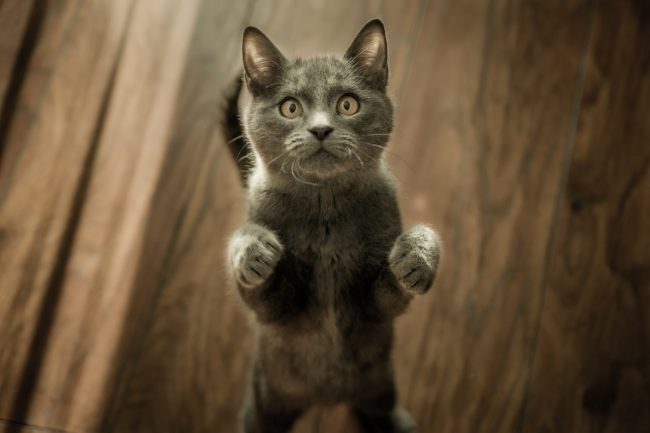
While cats are generally lactose intolerant, small amounts of cheese can be safe and even a tasty treat for our feline friends. Cheese is rich in protein and calcium, offering some nutritional benefits. However, it’s not a clear ‘paws-up’ situation.
Remember, moderation is key. Too much cheese can lead to upset tummies and other digestive issues, so it’s best served in small doses. And always go for plain cheese – flavored or seasoned varieties might contain ingredients harmful to cats. So, cheese – it’s not quite the ideal human food for cats, but as an occasional treat, it’s just purr-fect!
3. Chicken
Alright, let’s talk chicken! Many of us enjoy a delicious chicken dinner, and it turns out, our furry friends can join in too. Chicken is not just safe, but it’s a great source of protein, necessary for your cat’s muscle development and overall health. Plus, it packs in essential vitamins like B6 and B12 that support your cat’s body functions.
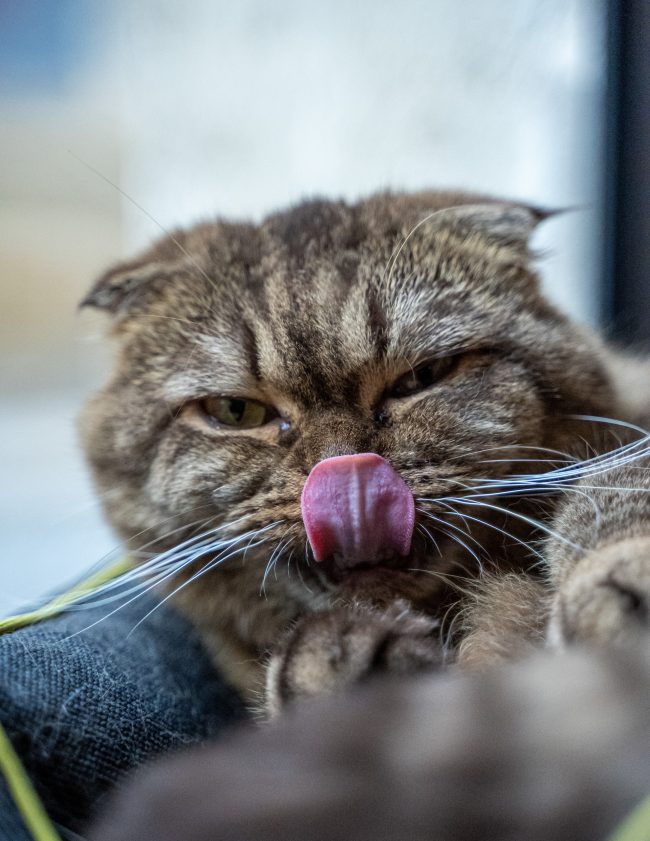
But before you slide that chicken off your plate, remember, it should be well-cooked and free of seasonings that might upset your kitty’s tummy. Oh, and those bones? They’re a no-no, as they can be a choking hazard and cause internal harm. So, chicken? Absolutely! It’s a feline feast as long as it’s served safely. Bon appétit, kitty!
4. Fruits
Now, you might be thinking, ‘Do cats even like fruit?’ Well, while our feline friends are primarily cute little meat lovers, some fruits can be safely introduced for a bit of variety and nutritional benefits.
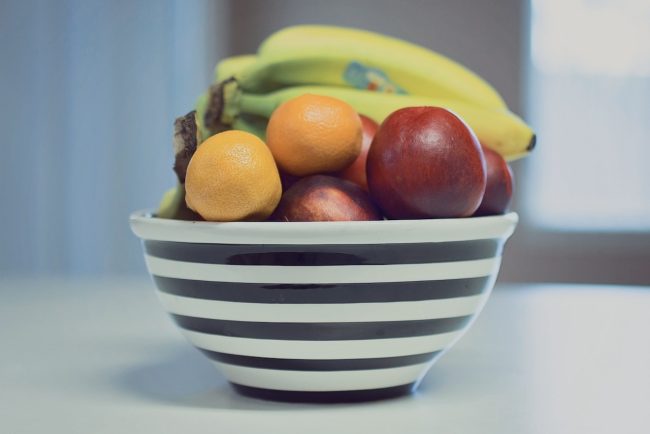
For example, blueberries, which are packed with antioxidants, can be a fun, bite-sized snack for your kitty! What about apples? Absolutely! Just remember to remove the seeds, which can be harmful, and your cat can enjoy a juicy, crunchy apple slice.
On the tropical side, you might find your cat going bananas over, well, bananas. These sweet fruits are packed with potassium and can be a fun treat for your kitty – just remember to serve it in moderation due to the high sugar content.
Melons like watermelon or cantaloupe, seeds and rind removed, can be another refreshing option for our furry friends on a warm day. And, let’s not forget about pears – seeds out, of course! They can offer a sweet, soft snack with additional fiber and vitamin C.
However, amidst this fruit fiesta, remember not all fruits are cat-friendly. Grapes and raisins are off the table, as they can cause serious kidney damage. Citrus fruits, like lemons or oranges, are too acidic and can lead to upset stomachs.
As always, when introducing new foods to your cat’s diet, take it slow. Offer a small amount first to monitor for any allergic reactions or digestive upset.
They might not even be interested in fruit if they’ve been served meat-based food since birth. But, an occasional fruity treat might attract their attention. Just ensure it’s fresh, safe, and served in moderation.
5. Eggs
Moving on from the fruit basket, let’s crack into the topic of eggs. Are they safe for our feline companions? The answer is a resounding yes – but only when they’re cooked.
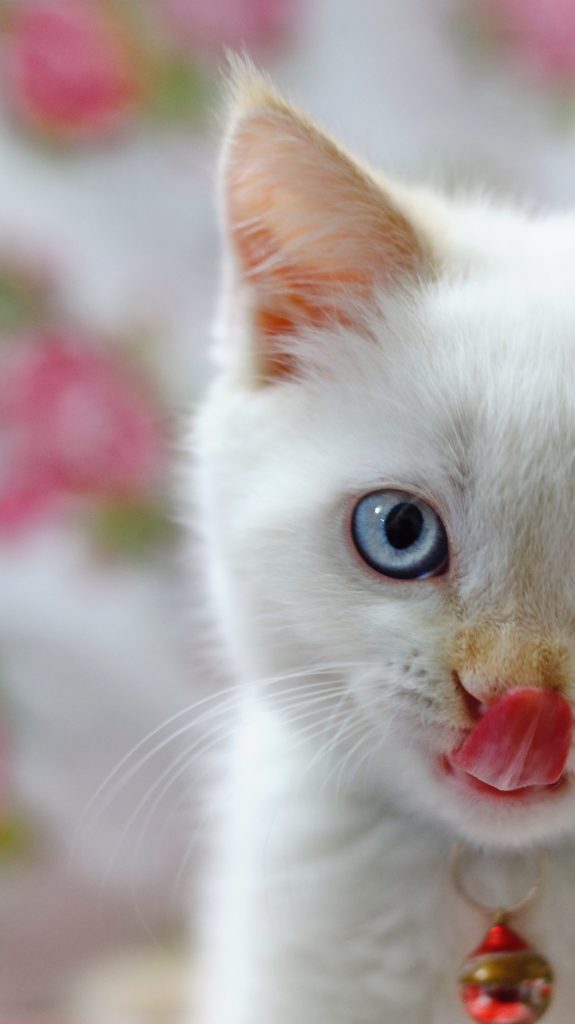
Just like us, cats can enjoy a good egg. Eggs are packed with protein and B vitamins, making them a nutritious addition to a cat’s diet. But before you start scrambling an egg for your kitty’s breakfast, remember to fully cook it.
Raw eggs can contain Salmonella and E. coli, which could cause food poisoning. Additionally, a protein in raw eggs interferes with the absorption of a particular B vitamin in cats, which can cause skin and coat problems over time.
So, when served right – fully cooked, unseasoned, and in moderation – eggs can indeed be a safe and tasty treat for our true carnivore friends. Just remember, eggs should be a supplement, and we recommend you feed them some of your food only if they show interest.
If they are not curious to come and sniff around your plate, let them be. They are probably safer with their special cat food.
6. Carrots
So, do cats have a taste for these crunchy veggies? Well, we don’t know if you know this, but you can sometimes find carrots in commercially available cat food. They’re often included as a source of additional vitamins and fiber.
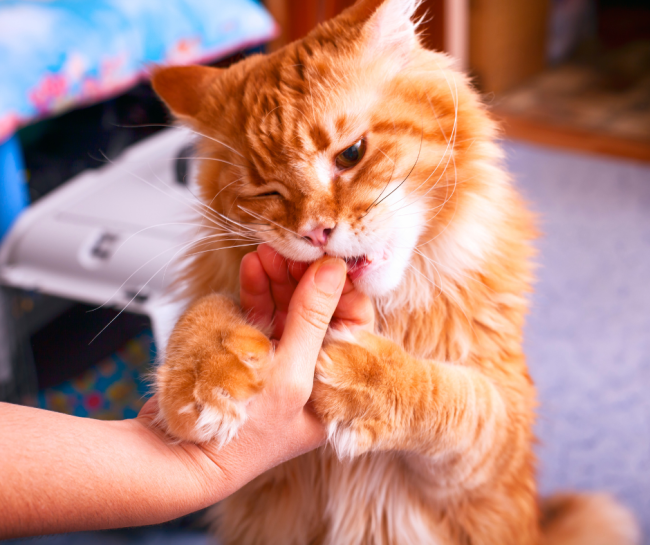
Carrots are rich in vitamins like beta carotene, which converts to vitamin A, an essential nutrient for our feline friends. This nutrient benefits their skin, coat, and vision. However, cats can’t convert beta-carotene to vitamin A as efficiently as humans do, so meat remains their primary source of this vital nutrient.
Now, if you’re planning on serving carrots, remember a few ‘root rules’. First, always cook the carrots. Raw carrots can be a choking hazard and are tough for cats to digest. Secondly, dice them into small, manageable pieces to make them easier for your kitty to eat. Lastly, keep it plain – no need for added seasonings that could upset your cat’s stomach.
So, while carrots might not become your cat’s favorite food, they can serve as a safe, vitamin-packed treat. Just remember to serve them cooked, diced, and unseasoned – a purr-fectly simple way to add a bit of veggie variety to your cat’s diet.
And don’t take it personally if your cat will just give it a few sniffs and say “pass”. If they’ve been eating meat all their lives, they just might not like the idea of veggies. I mean, “what is this human food?!
7. Bacon and ham
Ah, the purrfect aroma of bacon and ham! As delicious as these meats are to us, should we share them with our feline friends? Well, while they’re not toxic, it’s best to keep these salty treats to a minimum for our kitties.
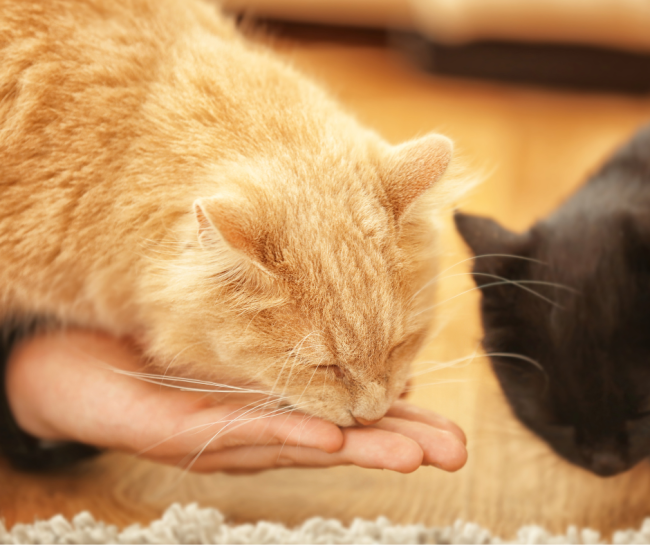
Both bacon and ham are processed meats that contain high levels of salt and fat. While an occasional small piece won’t harm your cat, regularly eating these foods can lead to unhealthy weight gain and other health problems such as pancreatitis, due to their high-fat content. Also, excessive salt can be harmful to cats, potentially leading to an imbalance in electrolyte levels, which could cause serious health issues.
If you want to share a meaty treat with your cat, opt for lean, unseasoned meats like chicken or turkey. But if your kitty has a hankering for a taste of bacon or ham, make sure it’s a rare treat and served in very small amounts. Remember, it’s always important to keep their diet balanced and predominantly based on high-quality cat food.
You see, if they’re apartment cats who are used to lounging in the sunny spots on your floor, and on their cat tree, chances are they will gain a little bit of weight each year. So, it’s better to watch their weight and diet for a bit. While they might be interested in a little bacon and ham treat, don’t overdo it. It’s for their safety and health.
8. Shrimp
As true carnivores, cats can definitely enjoy these little sea critters!
Shrimp are high in protein, B vitamins, and omega-3 fatty acids, all of which are beneficial for your cat’s health. The omega-3 fatty acids can aid in maintaining healthy skin and coat, while the protein contributes to overall muscle health.
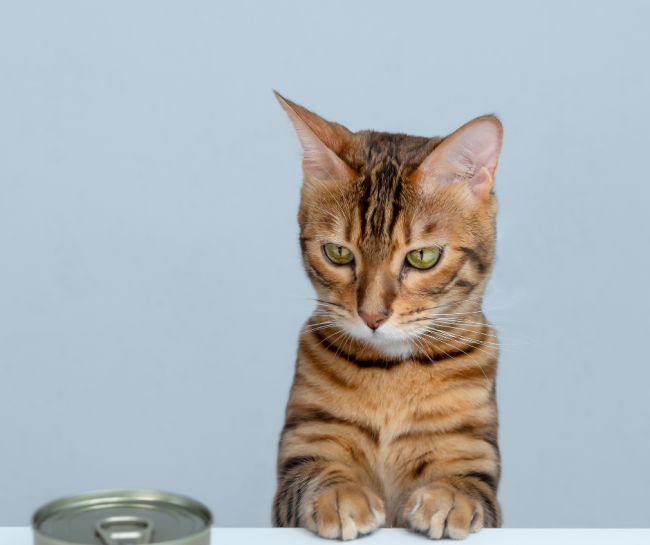
However, you should know the rule by now! They should always be served cooked and unseasoned. Raw shrimp can contain harmful bacteria that could cause foodborne illnesses. Also, make sure to remove the shell, tail, and devein the shrimp as these parts can be a choking hazard or hard for your kitty to digest.
9. Whole grains
Whole grains like brown rice, barley, and wheat can be a source of fiber, which can aid in digestion. They also contain various vitamins and minerals like vitamin B, iron, and magnesium. Quinoa, a pseudo-cereal, is another option that’s packed with protein and is gluten-free.
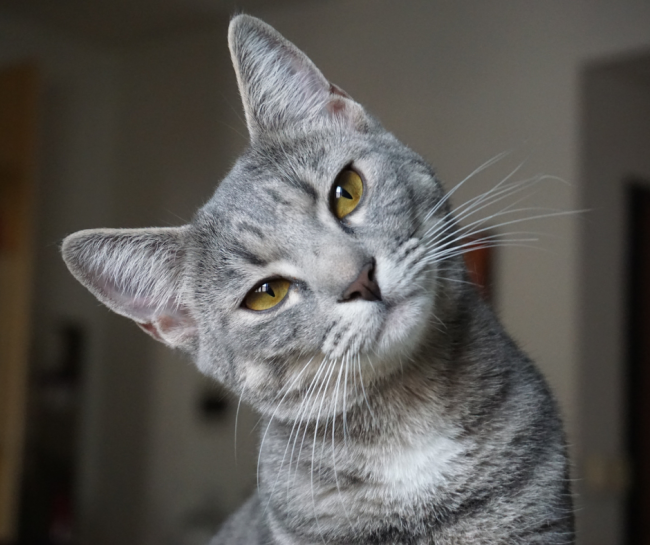
However, if you’re planning to serve your kitty whole grains, there are a few important things to remember. Firstly, ensure the grains are cooked and easy to digest. Secondly, they should be offered plain, without any added seasonings or sauces. Finally, grains should make up only a small portion of a cat’s diet, which should be primarily meat-based.
It’s also worth noting that while some cats may enjoy grains, others may not tolerate them as well or might simply not like them. If your cat shows any signs of a food allergy, like itching, swelling, or digestive issues, stop feeding them the grains and consult with your vet.
10. Bread
And while we’re on the topic of grains, let’s talk bread. Can our feline friends enjoy a slice from our loaf? Well, in moderation and with a few conditions, yes.
Bread isn’t harmful to cats, but it doesn’t offer any significant health benefits either. While it might provide some fiber and nutrients, it’s not something your cat needs in their diet as they gain the necessary nutrients from their regular cat food.
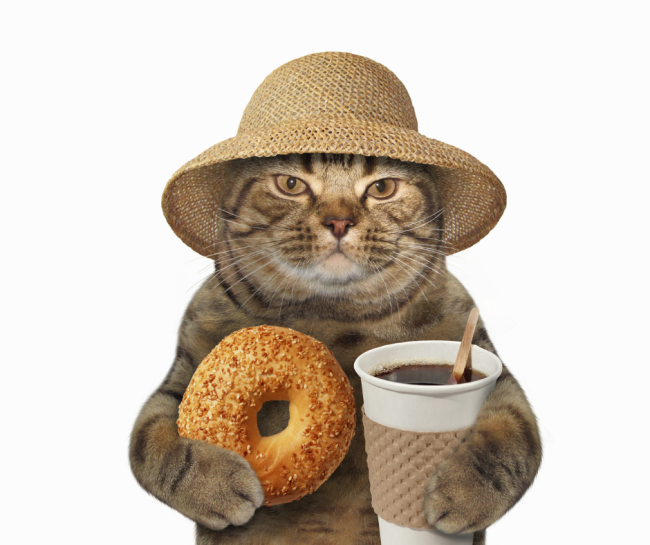
If you do choose to give your cat bread, ensure it’s plain, without any additional flavorings or ingredients. Some ingredients commonly found in certain types of bread, like garlic, onions, raisins, or chocolate, can be toxic to cats.
Also, it’s crucial to avoid giving your cat raw dough. If ingested, it can rise in your cat’s stomach causing discomfort, bloating, and potentially serious complications.
Besides, your cat might not even be interested in a plain slice of bread. So, don’t force it on them.
11. Beef
Now let’s moo-ve onto a meatier topic: beef.
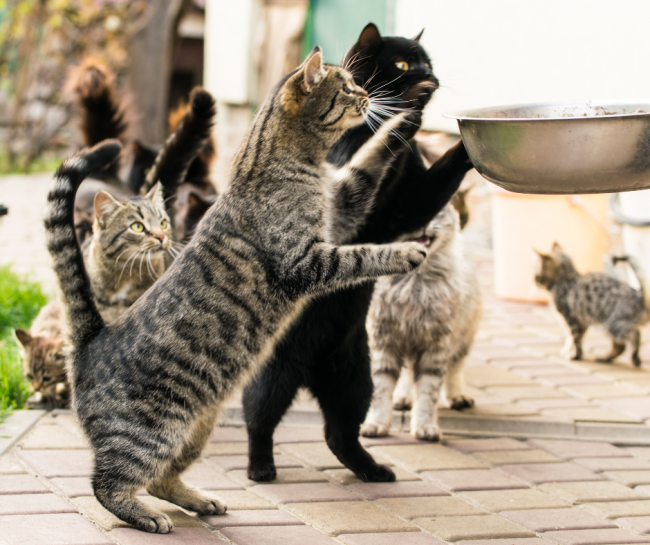
Beef is packed with protein, which is essential for your feline friend’s overall health, muscle growth, and maintenance. It’s also a good source of B vitamins and amino acids, which can help keep your cat’s body functioning at its best.
If you’re planning to treat your kitty to some beef, here are a few guidelines. First, make sure the beef is cooked. Raw beef can contain harmful bacteria that could cause foodborne illnesses. Second, the beef should be unseasoned. Many seasonings, such as onions or garlic, can be harmful to cats. Lastly, cut the meat into small, manageable pieces to prevent choking.
